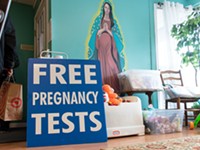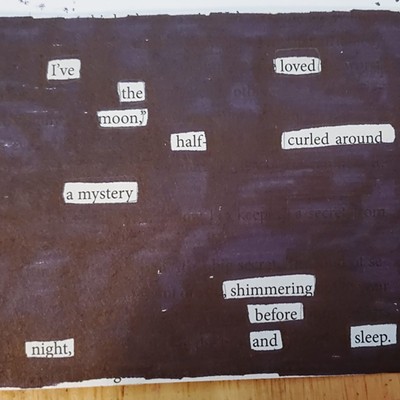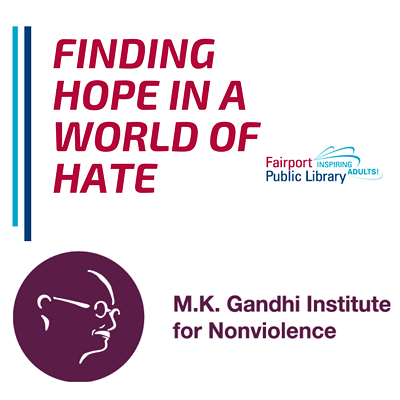Feedback 9/20
[
{
"name": "500x250 Ad",
"insertPoint": "5",
"component": "15667920",
"parentWrapperClass": "",
"requiredCountToDisplay": "1"
}
]
Caring about race and poverty
Regarding Urban Journal's "How Racist Is Rochester?" and the related questions of "Do we know?" and "Do we care?": I offer the following thoughts based on the personal experience of my wife and me over the past 1 to 2 years. We discovered that the only way to get to understand the data of the 2014 Poverty Report and the many other so-called "facts" about racism in our community was to get out of our suburban comfort zone and actually meet and get to know the people of color, our city "neighbors."
We have been profoundly gratified with the discoveries we have made regarding their experiences, current situations, and most important, the many new relationships and friendships we have built in a relatively short period of time.
First, we began to visit black faith communities in the city for Sunday services. In the dozen or so times we have done this far, we always came away amazed by the welcoming we received as we shared God's word together.
Second, through our parish and its affiliation with RocACTS, we partnered with a black faith community in the city in a program called "Sacred Conversations." Over two sessions and six hours, 10 to 12 members of each community (one primarily black and one virtually all white) got to know each other and discuss how Jim Crow type activities from years past impacted black lives and how it still lives today in other forms.
Third, we invested time in a 10-week educational program sponsored by a new organization recently renamed MAMA. We learned about the true story of American black history and were astounded by what we did not know because we either were not taught or were blinded by the unfortunate parallel universes of "black and white" we live in.
We implore all whites to think very seriously about even just doing one of these or to get involved in some way of your own and therefore take a step toward getting beyond your preconceived notions and the "facts" as you think you might know them. We can guarantee that you will be surprised and not disappointed in what you learn.
And more important: the new "neighbors" you will meet. Building relationships begins to answer the two important questions in the article: "Do we know?" and "Do we care?"
BILL WYNNE
We white people don't want racism, both personal and structural, to be the cause of inequality and oppression in our city. If we admit they are, then we implicate ourselves, delegitimize what we have earned (supposedly on our own), and force us to admit that the American myth of equality for all has never been fully true people of color.
Racism and inequality will not go away, because it would force white people like myself to let go of the collective mythology of hard work and the American dream. For example, wealth in our country comes largely from home ownership. It is fact that the federal and local governments used redlining, racial covenants, and exclusionary zoning to benefit whites at the long-term expense of blacks.
I suggest that CITY Newspaper do a series of articles explaining the specifics of how racist federal and local policy largely created the wealth inequality we have today. I would love to see in-depth reporting on places like Meadowbrook in Brighton, zoning laws in Pittsford and Penfield that spells out what so many of us already know but are trying hard to not believe about the foundations of our community. We can't all move forward if we don't deal with the injustice of the past and ignore the injustice of the present.
SHANE WIEGAND
Arts town
"City of the Arts" is nothing more than a hyperbolic PR catch phrase. Personally, rather than trying to appear higher on the cultural list, I'd rather see Rochester work to be lower on the lists for number of citizens being shot, number of children living in poverty, and number of students failing to graduate.
ELLAN VANNIN
Teacher hiring is the board's job
On former interim superintendent Bill Cala's guest commentary, "The Complicated Path to Teacher Diversity": Bill Cala is a thoughtful educator and has walked the walk. That said, I have to take issue with his argument that the board's screening of teacher candidates is crossing a policy line.
We should be scrutinizing teachers more than high-level managers on Broad Street. Principals of schools are not elected officials or in any way chosen by the students or the parent population, whereas the school board members are, and they have to live in the city. Only 5 percent of the district's administrative staff lives in the city.
I am not saying that principals and the superintendent shouldn't have a say in which teachers get hired, but I don't think it hurts to have an extra dozen eyes scrutinizing the hiring, especially by people who actually live in the city and were elected by the population that lives in the city.
The school board members are finally sinking their teeth into a real education issue, one they have control over. The black parents, the teachers, the activists, and the board are trying to take ownership over their education.
A group that is taking action right now on this one front is the Take It Down, Faith Community Alliance, and the Movement for Anti-racist Ministry and Action coalition. And the board appears to be responding. Why, if Mr. Cala is serious about action, would he get in the way of this?
RAJESH BARNABAS





